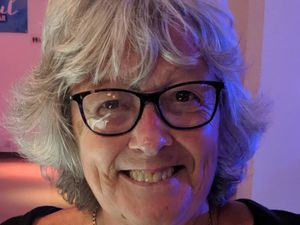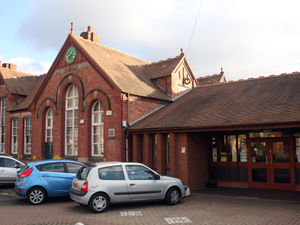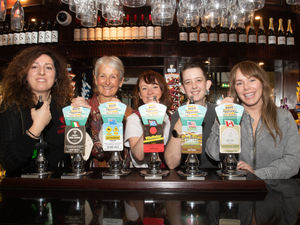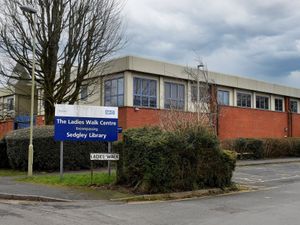'We will remember them': Village gets first war memorial
A Black Country village has been given its first war memorial which has been installed on the grounds of a church.
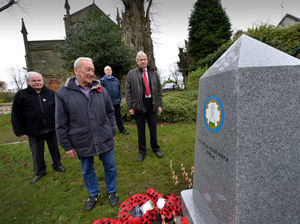
The 5ft 4in tall monument, which is made from granite, is located at All Saints Church, in Sedgley, Dudley.
It was installed on Friday just in time for a small and informal gathering to be held on Remembrance Sunday.
Due to the current lockdown, churches services are not allowed.
But several villagers gathered informally in the church gardens, while maintaining the two-metre social-distancing rule, to hear a recording of the Last Post, the Reveille, and observe a two minute silence.
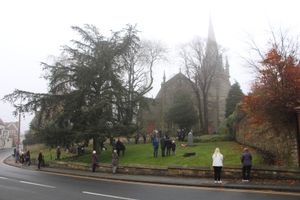
Up until now, villager's have place commemorative wreaths on the church's steps during remembrance services.
The monument was installed by J and A Monuments of Blackheath.
It weighs 1.5 tonnes and was funded through a council grant alongside Sedgley Ex-Servicemen's Club and a private donor.
The grant, from the Coseley East and Sedgley Forum, totalled £5,000.
The plinth and obelisk face the centre of the village.
These features are made from a highly polished type of granite, which has been specially imported from India, and echo the spires of All Saints' Church.
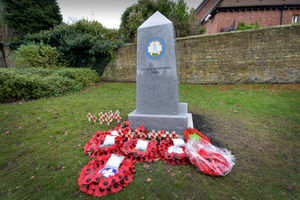
The monument also features Sedgley's coat of arms, consisting of the Beacon Tower and Staffordshire Knot logos, which were sandblasted into the granite and then hand painted in blue and gold.
The structure also features the words "We Will Remember Them" on both sides of the monument.
Martin Jones, a local historian from Sedgley, said: "There is a message on the monument which says 'We Will Remember Them' which has been engraved onto both sides.
"That is the message we have got to take away. We have got to remember them, they gave their lives."
He added: "I think everybody is delighted that after 100 years of waiting, the village has got its own war memorial because for one reason or another, it was never done after the First World War.
"In the terms of the monument itself, it is absolutely beautiful."
Mr Jones, who carries out extensive research on the local area, says 40 people from Sedgley died in the Second World War while in the First World War it was about 170.

